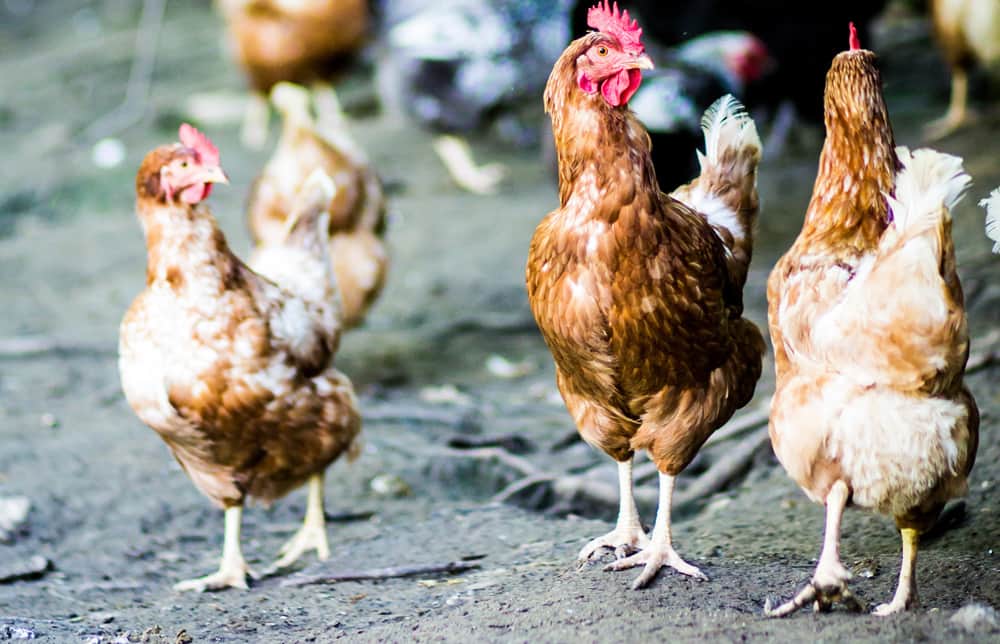When we moved to the farm, one of our goals was to live a healthier lifestyle. Having access to raw goat milk was but one step in the process. We added several breeds of chickens to our little homestead including Black Australorps, Red Sexlinks, Golden Comets and SilverLaced Wyandottes. These four breeds lay wonderfully large eggs in varying shades from light tan to brown.
We set up our chickens to be raised naturally and holistically. Visitors often ask us what is the difference between Cage Free vs Free Range vs Organic eggs. They have very different meanings.
Cage Free – This means chickens are not confined to small cages, which is common in industrial chicken farming. Chickens are confined in spaces so small they can barely turn around. Their beaks are trimmed so that they are not a danger to each other. Such close quarters increases the odds of illness and disease. However, industrial farms do raise chickens “cage free” in large open barns , where thousands can congregate together on pine shavings in a restricted area. While better than “cages”, the hens still reside in close quarters, which limits the bird’s natural ability and instinct to scratch and hunt for food. Their diet is usually grain based. Such close quarters increases the need for antibiotics to keep down the incidence of infection.
Free Range – These eggs come from hens that are allowed outside at free will and spend at least part of the day roaming freely. Smaller farms may keep birds under a moveable canopy, but the birds are still allowed to forage and consume naturally occurring feed. Grain may or may not be fed to supplement their diet. These chickens eat a range of grass, flowers, seeds, and insects. A wonderful side benefit of free range chickens is the reduction of ticks and mosquitoes in any area they frequent. We have not seen a tick on any of our dogs in over three years!
Organic – Organic eggs can come from either cage free and free range chickens. In order to qualify for USDA organic certification, grain and other feeds must be produced on land that has been free from fertilizers or pesticides for a minimum of three years. GMO crops are not permitted, and hens must be cared for without hormones, antibiotics, and other drugs.
In 2007, Mother Earth News did an analysis on 14 flocks around the country that were either free range, cage free or housed in moveable pens that allowed access to free range grazing and protected them from predators. The eggs were then tested by an accredited laboratory in Portland, Oregon. The results were dramatic. As compared to supermarket eggs, the flocks produced eggs that had:
- 1/3 less cholesterol
- 1/4 less saturated fat
- 2/3 more Vitamin A
- Double the Omega-3 Fatty Acids
- 3 times more Vitamin E
- 7 times more beta carotene
In conclusion, when you purchase eggs, just remember that eggs from pasture-based chickens are higher quality and have significantly greater nutrition. Some of our customers claim the eggs even taste different. Visually, you will see dark yellow to orangish color yolks and clearer egg whites. The shells are harder, thicker and stronger, so there is less breakage when gathering eggs as well. Superior eggs are produced when chickens are kept close to the land and allowed to function as mother nature intended.



Comments
Do you sell eggs.
No we don’t. Sorry!